On a yearly basis, 250,000 tons of eggshells are produced worldwide. Often discarded as waste, they, however, hold remarkable potential for reuse. Innovatively, researchers are exploring how to transform these husks into new materials, including biodegradable plastics and eco-friendly construction materials. By reimagining these overlooked remnants, we not only reduce waste but also contribute to a more sustainable lifestyle.
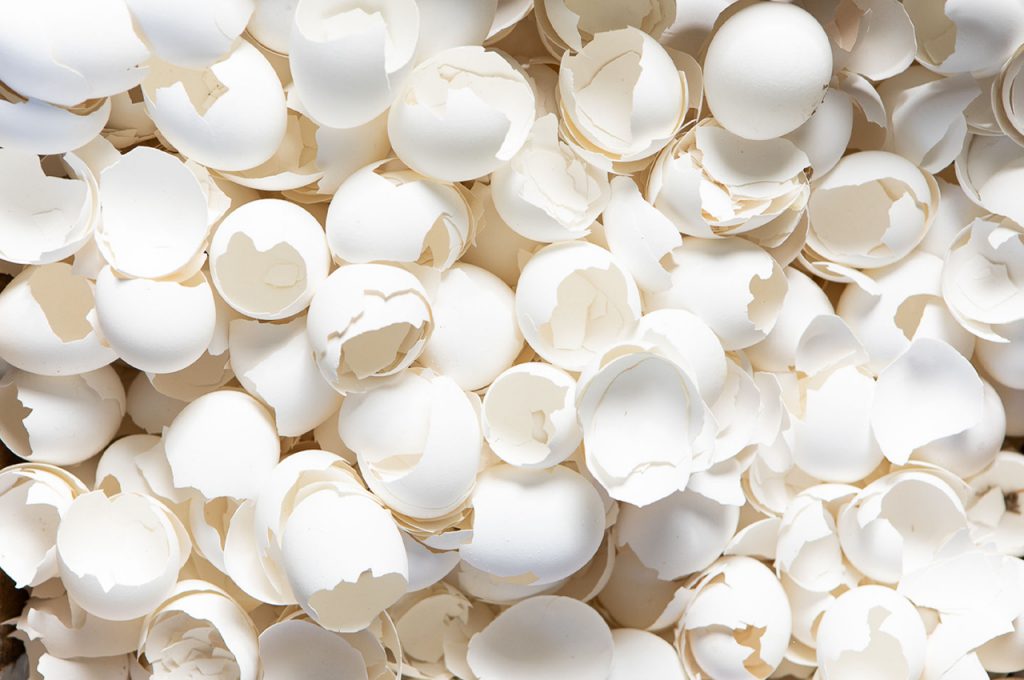
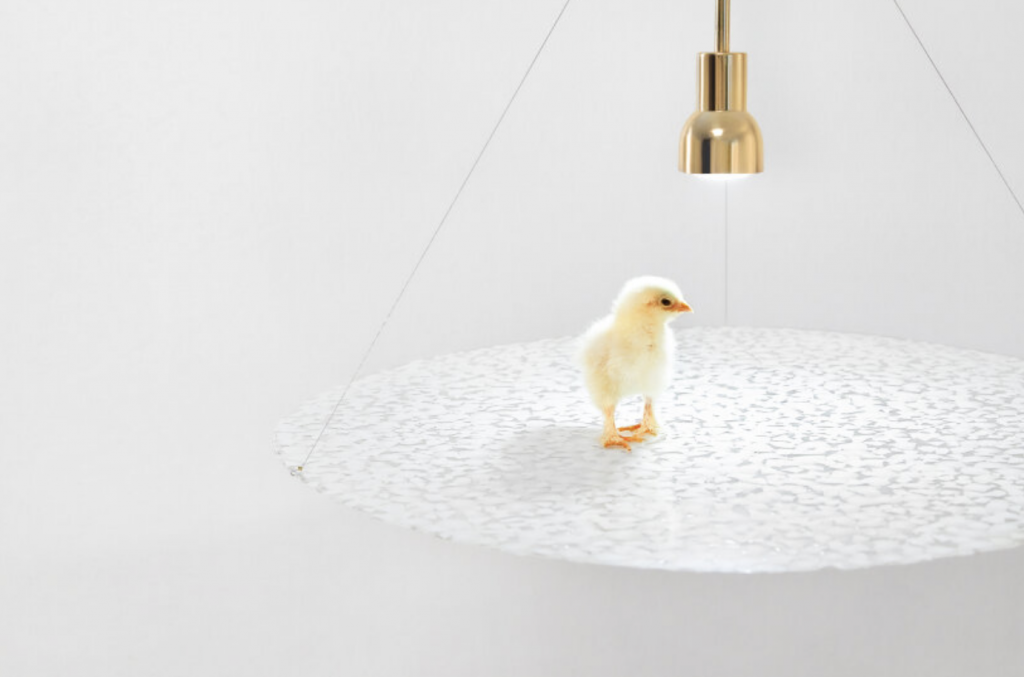
Hatch by Yellowdot
Studio Yellowdot, based between Hong Kong and Istanbul, has embraced recycled eggshells in their designs, capitalizing on Hong Kong’s impressive annual per capita egg consumption of around 450. Often referred to as “nature’s ceramic,” eggshells packed with calcium carbonate are both fragile and strong, offering unique light permeability.
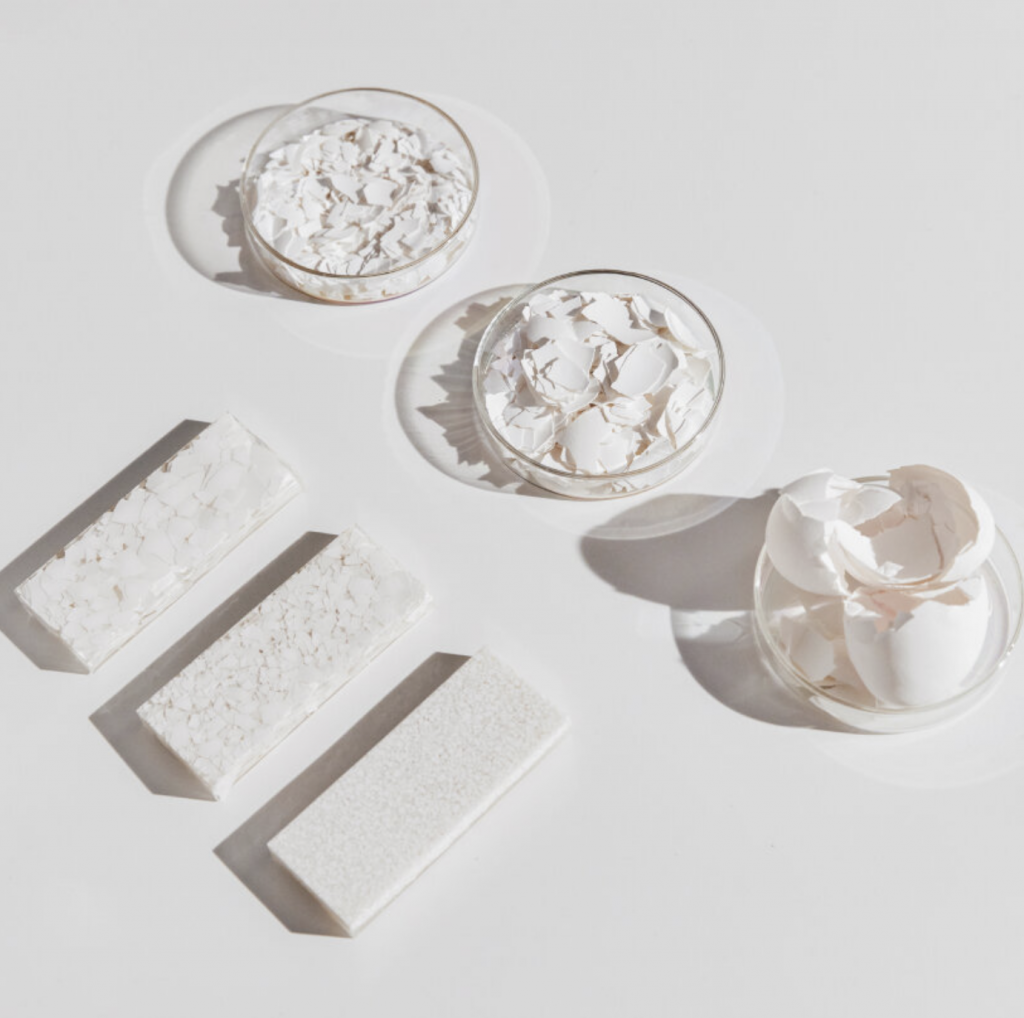
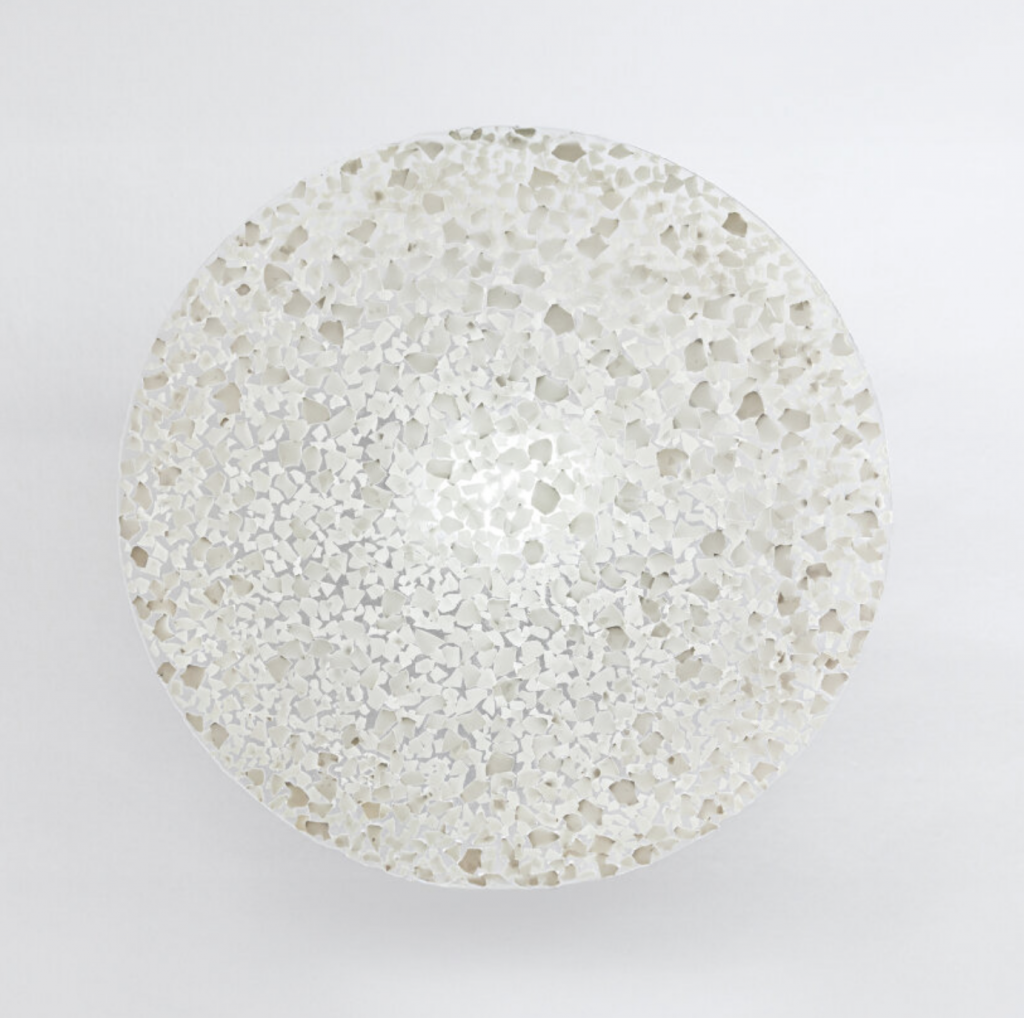
Hatch by Yellowdot
Led by Dilara Kan Hon and Bodin Hon, the studio collected approximately 60 eggs over a month to create a diffuser from this waste for their pendant light series, Hatch. Sourced from homes and local bakeries, the eggshells are carefully arranged by hand and bonded with resin to form the light diffuser, whose form is inspired by heat lamps used for incubating chicks.
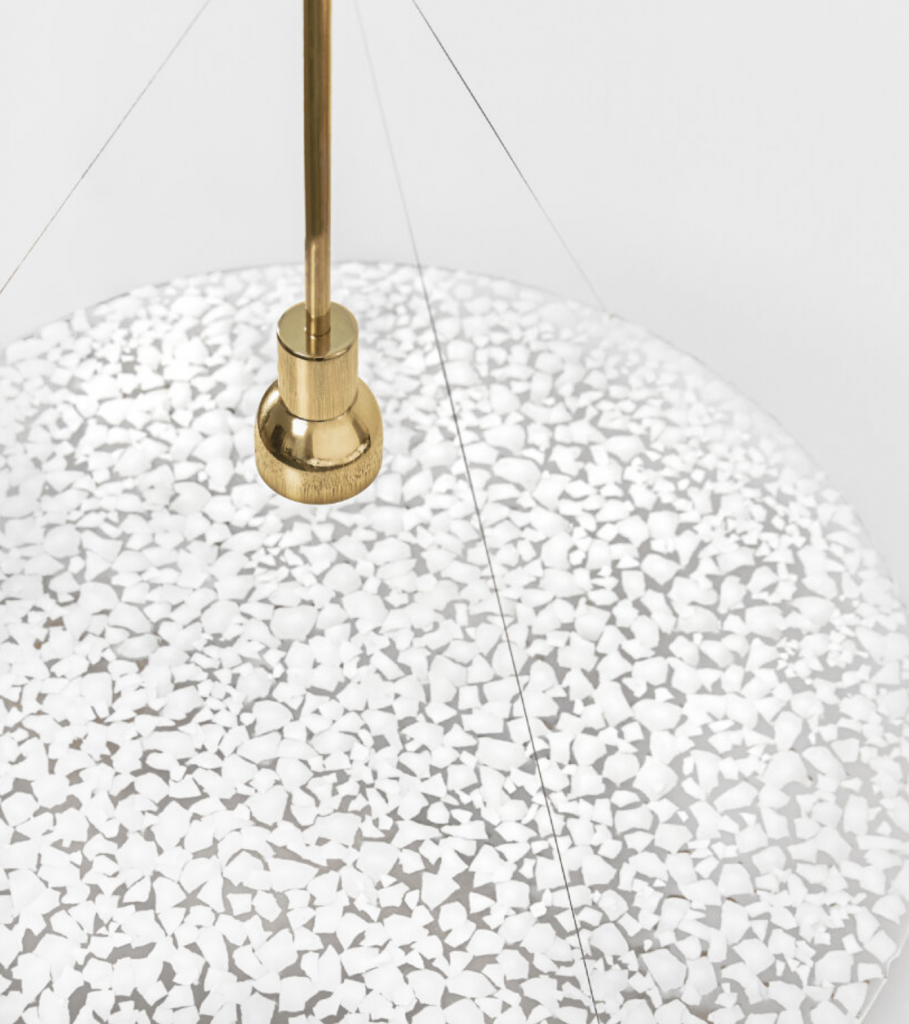
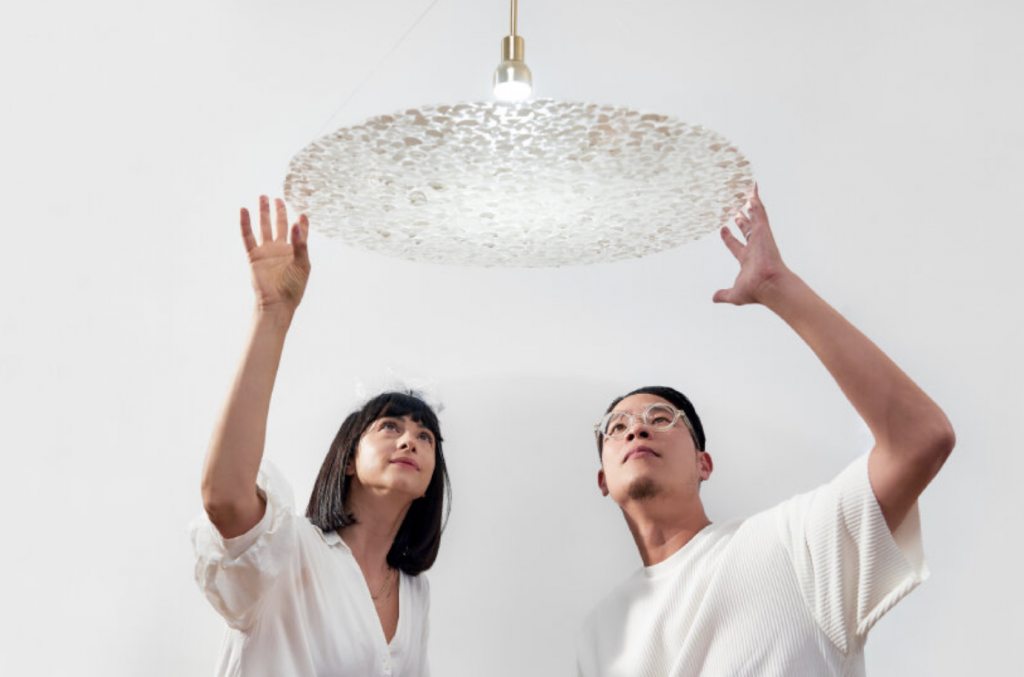
Hatch by Yellowdot
The pendant features an energy-efficient LED light housed in a hand-turned polished brass casing, which beautifully contrasts with the resin-imbued eggshells. Suspended by three fine cables, the semi-translucent eggshells produce a captivating light-scattering effect when illuminated.
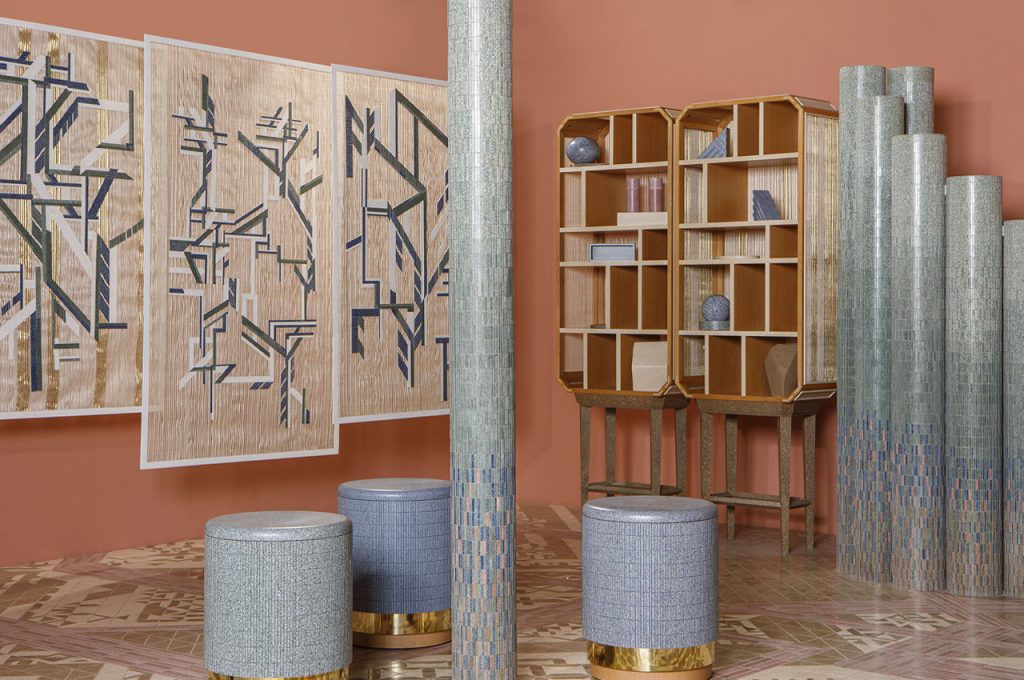
CArrelé by Elaine Yan Ling Ng x Nature Squared
Elaine Yan Ling Ng, Chief Innovator of Nature Squared, transforms eggshell scraps into bioceramic tiles. made from a mixture of eggshell fragments and binding agents, CArrelé is a collection of high-performance, eggshell-based tiles that take on different hues and gradients depending on the additives used.
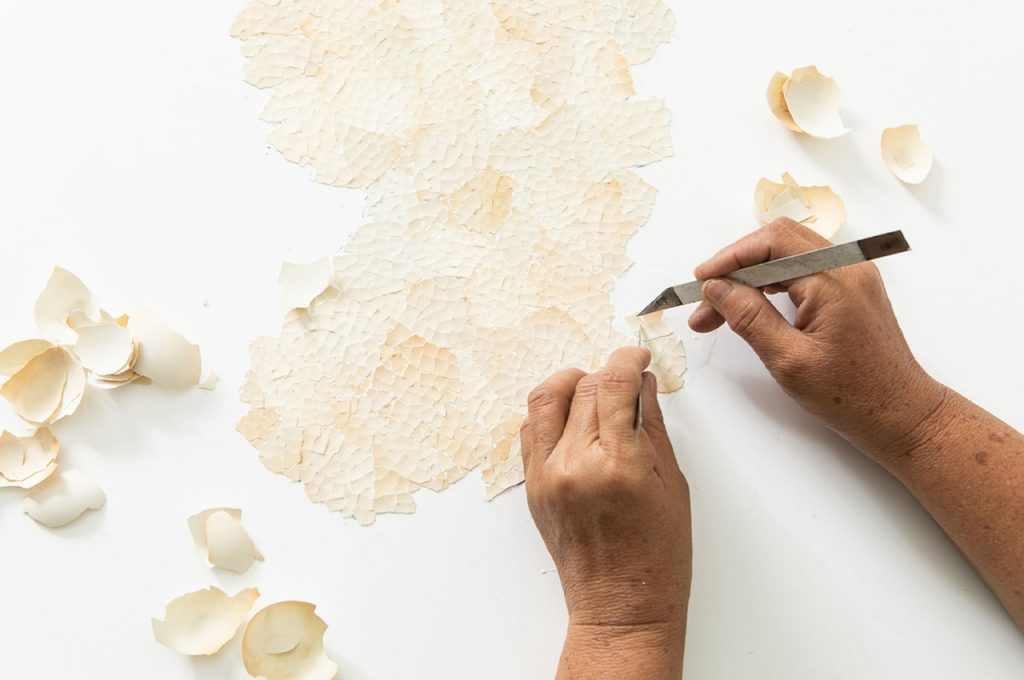
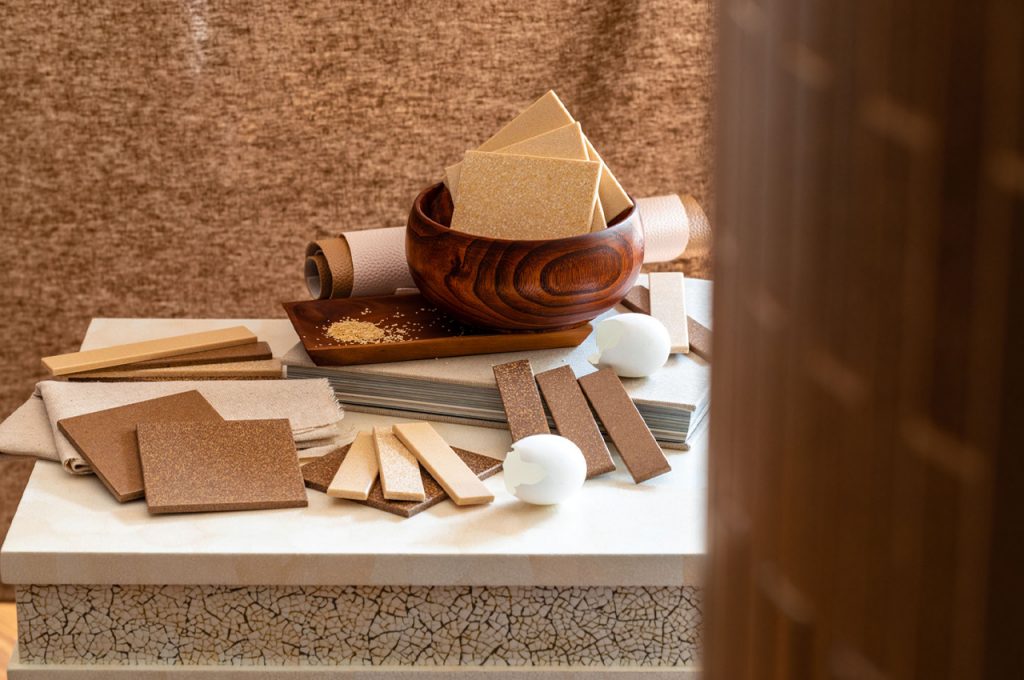
CArrelé by Elaine Yan Ling Ng x Nature Squared
Unlike traditional ceramic and porcelain tiles, eggshells naturally absorb carbon dioxide, acting as an organic, absorbent filter that separates CO2 from industrial gases. Sourced from local bakeries and kitchens in the Philippines, Nature Squared crushes the eggshells into tiny fragments, creating tiles reminiscent of terrazzo. The fragments vary in size from a grain of sand to three millimeters, resulting in a unique, irregular speckled appearance.
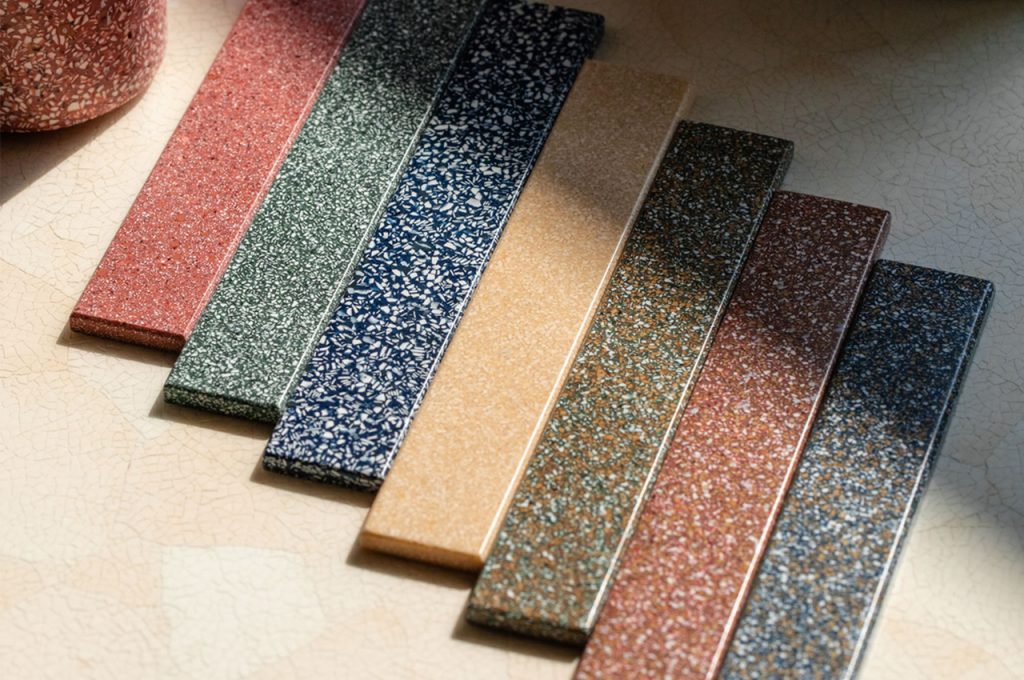
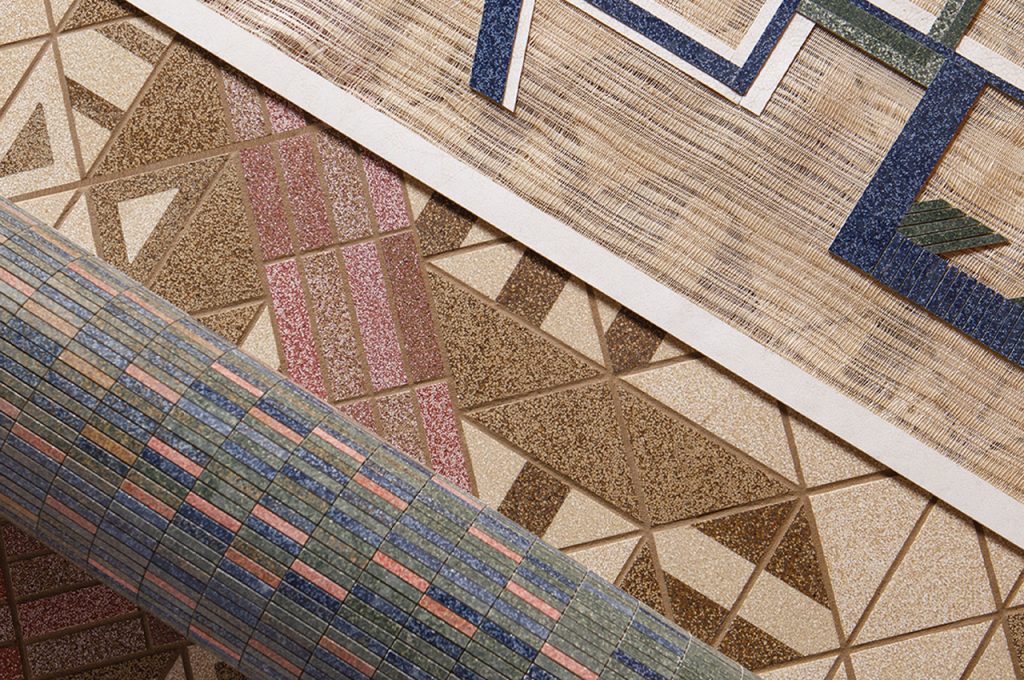
CArrelé by Elaine Yan Ling Ng x Nature Squared
To create the final tiles, the fragments are mixed with a binding agent and shaped into various forms, then left to cure at room temperature. Nature Squared employs a range of dye techniques to achieve different looks. For an earthy, rustic finish, eggshell fragments are “toasted” to produce a gradient from rich cream to dark burnt tones. Additionally, the eggshells readily absorb natural dyes, including indigo, chlorophyllin, and madder, enhancing their aesthetic appeal.
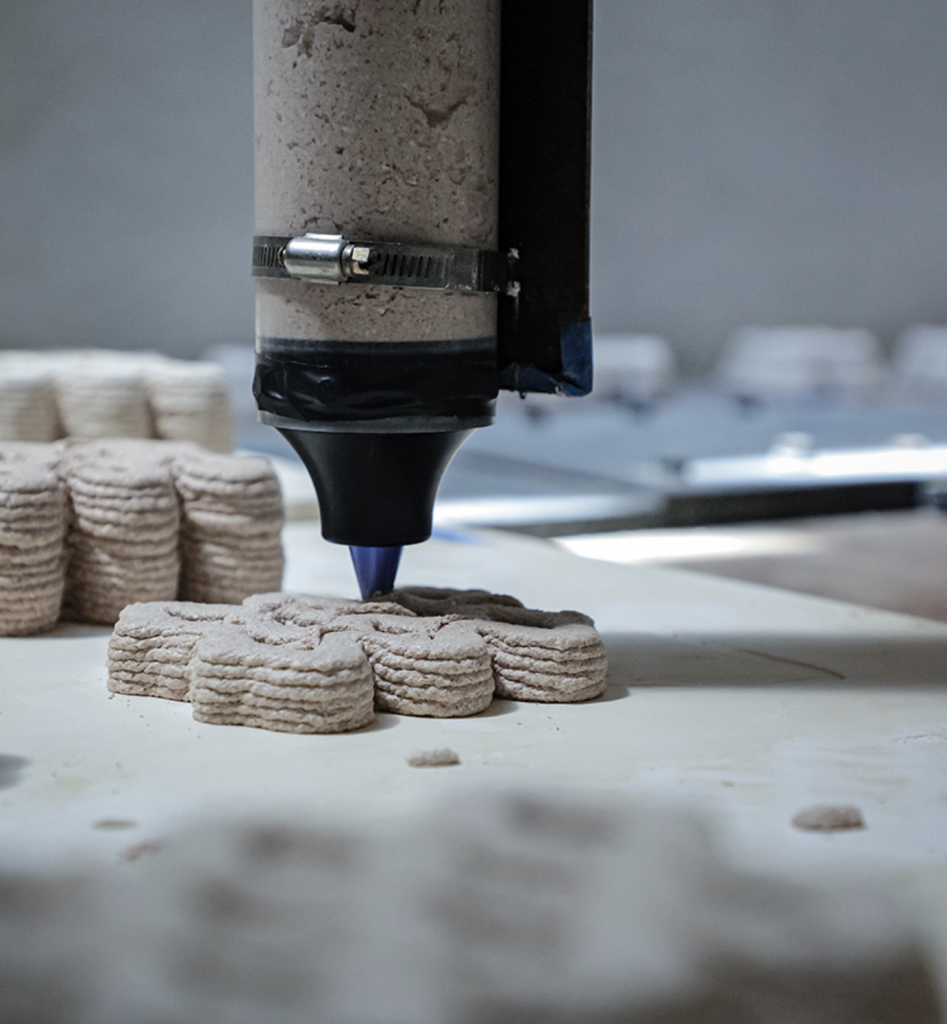
The Eggshell Project by MANUFACTURA
Mexico-based design studio MANUFACTURA is taking repurposed eggshell waste to new heights by transforming it into an innovative building material. Their initiative, The Eggshell Project (Un Proyecto de Huevo), employs a sustainable approach to ceramics by 3D printing a bioceramic made from discarded eggshells. This bioceramic is mixed with eco-friendly aggregates and shaped using a KUKA KR-150 robotic arm.
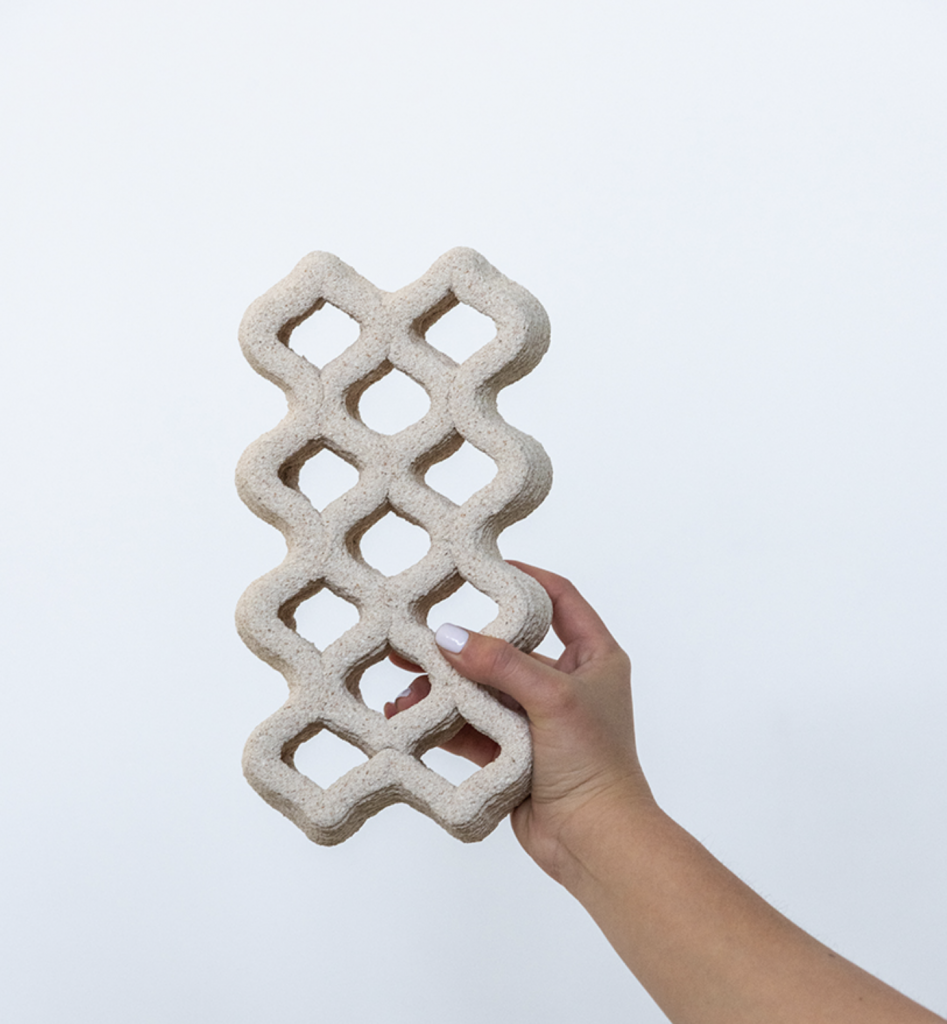
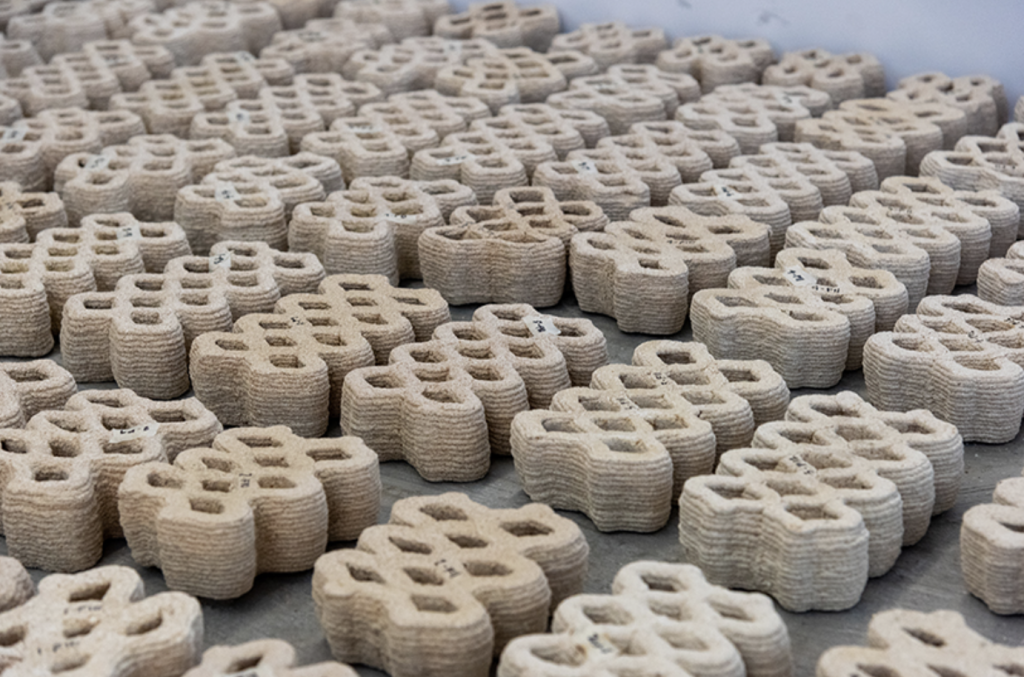
The Eggshell Project by MANUFACTURA
This process produces building blocks with varied geometries, suitable for diverse architectural applications. The new material not only aims to reduce the significant amount of food and organic waste in Mexico but also tackles the harmful environmental impact of the ceramics industry, addressing issues such as gas emissions, waste management, transportation, and energy use. By utilizing locally sourced, lightweight eggshells as a primary material, MANUFACTURA minimizes these negative effects. The mixture solidifies without firing, thanks to bio-binders, and is further enhanced through additive manufacturing with 3D printing.
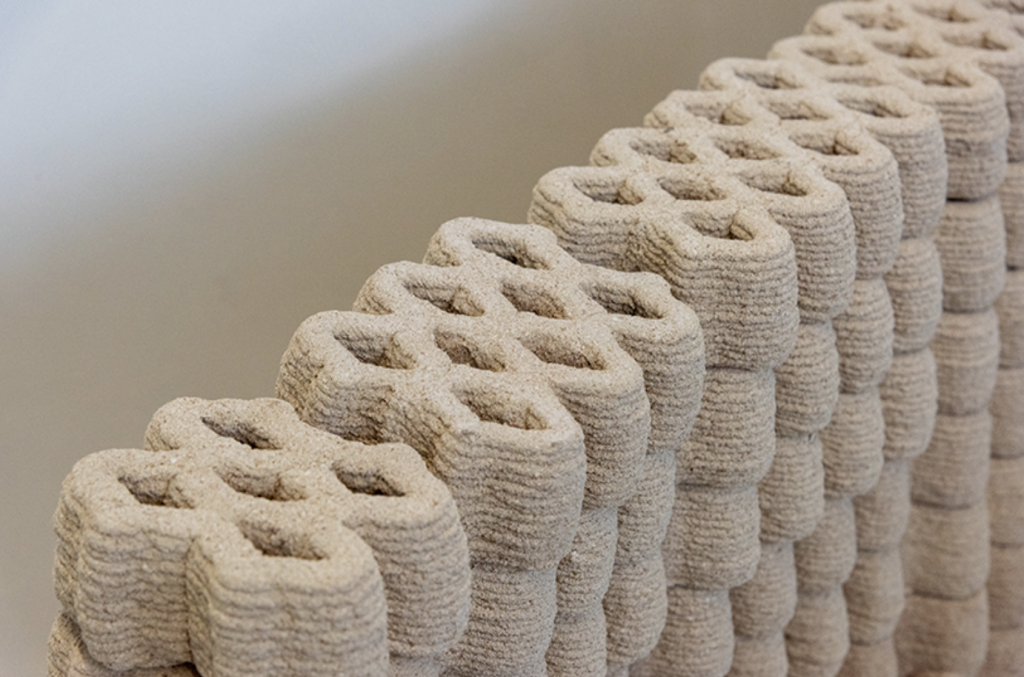

The Eggshell Project by MANUFACTURA
In their research, MANUFACTURA concentrated on developing construction materials, resulting in two key applications: the Eggshell Bricks Wall, comprising 105 uniquely shaped blocks, and the Eggshell Column, made of 26 interlocking pieces that provide structural stability. Each brick is produced through a completely sustainable and circular process, using raw materials sourced from over two months of waste donations from various restaurants in Mexico City.